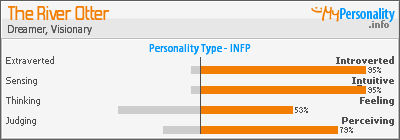 My photo, late October, 2007
My photo, late October, 2007A commenter on fellow blogger Erik Helm's site referred to the Estabrook Dam as the "trash hatch." It is true that Milwaukee County hasn't cleaned up the floaters since, I believe, 2005 (could it have been 2004?) They used to use heavy machinery to get rid of the trash and logs that build up behind the dam and spillway. There is something larger at work, though- the fact that we as a society not only keep creating this kind of crap (fast food containers, plastic bottles, and all other detritus), but once we have created it and used it once, we neglect to get it to where it is supposed to go (away, I assume. My mom lives just past The Dump on the county line, another visual reminder of this aspect of modern life). Getting rid of the dam will get rid of its ability to block this junk, but it will just continue down the stream to Lake Michigan, where it will harm wildlife just the same.
I had a conversation once with another thoughtful individual: I described to him how I had witnessed, time and time again, people enjoying, say, a bag of chips or a candy bar- and as soon as the last morsel was consumed, the person simply dropped the wrapper. In the street. Or on the sidewalk in front of my house. (This was at our prior home). We asked the city to put a trash receptacle on the corner, which they did. Yet, the behavior continued, despite this convenience that we had facilitated. So, after I described this daily scenario, I asked my friend why? Why do people do this?
"Because," he said, "they lack hope."
Even still- people that do (presumably) have hope continue to create just as much garbage- so much that escapees will inevitably find themselves on the street, washing into the storm drains, which lead down to the river- as most things do.



5 comments:
Very good post.
Rivers are the arteries of life. What we litter, spill, or dump, will end up in the river sooner or later.
If you are concerned about the plastic bottle and aluminum can issue, you may wish to read an excellent article at Orion magazine about the origins of the litter problem and the transference of perception of litter responsibility from corporate America to the American citizen. find it at http://www.orionmagazine.org/index.php/articles/article/3642/
Thanks for the link, Erik.
Wow that is a fascinating article, Erik. It reminds me of stuff I've read about some of the biggest polluters out East being the biggest supporters of "pink ribbon" campaigns and makers of pharmaceutical breast cancer "treatments."
The stretch of N. Oakland Ave. due west of UWM could easily support its own landfill. Lack hope? I think the kids just have a crappy attitude towards life.
I really think it is an issue of living entirely in the moment, without giving any thought whatsoever to consequences.
Post a Comment